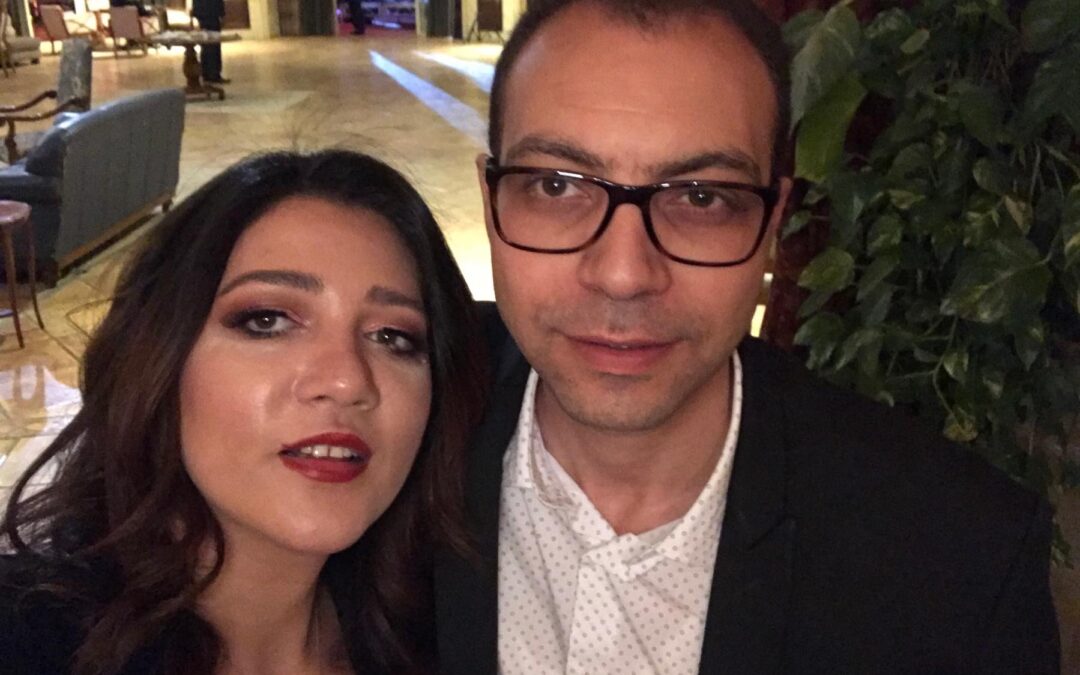
Dec 20, 2018 | News
Today the ICJ called for appropriate measures to ensure justice in the case of Amal Fathy, an Egyptian human rights defender who was sentenced to two years’ imprisonment following her conviction for criticizing the Egyptian authorities’ inadequate response to rampant sexual harassment on social media.
On 30 December, Cairo’s Misdemeanor Court of Appeal will decide on Amal Fathy’s appeal against the conviction. The ICJ stresses that Fathy’s conviction and her prolonged arbitrary detention violate her rights to freedom of expression and to liberty protected under Egyptian and international law.
On 29 September 2018, the Maadi Misdemeanor Court convicted Fathy of “broadcasting false information harmful to national security;” “publishing online material that insults public decency;” and the public “use of foul language.” The charges were in reaction to her posting a video on Facebook criticizing the Egyptian authorities for failing to protect women against sexual harassment and for the poor quality of public services.
The Court sentenced Amal Fathy to two years’ imprisonment for the first two charges and fined her 10,000 Egyptian Pounds (US$558) for the latter, and set bail at 20,000 Egyptian Pounds (US$1115) pending her appeal.
Amal Fathy is said to be suffering from acute stress and depression as a result of her detention.
“Amal Fathy was charged and convicted for exercising her human right to freely express herself, which she exercised by calling on the Egyptian authorities to meet their obligation to protect the population from gender-based violence and commenting on the effectiveness of the services they provide. This is hardly a threat to national security or insult to public decency,” said Said Benarbia, Director of ICJ’s Middle East and North Africa Programme. “We hope the Court will recognize the charges are completely without legitimacy.”
Amal Fathy was detained from the time of her arrest on 11 May 2018 and following her conviction, despite posting bail. Her ongoing detention was based on charges issued by the Supreme State Security Prosecution on 12 May 2018 in a second case (Case No. 621/2018), including “membership in a terrorist organization,” “the use of the internet to promote ideas and beliefs calling for terrorist acts” and “spreading false news and rumors that damage public order and harm national interest.” There are at least six other defendants in the case, including two political activists, a journalist and a satirical comedy TV reporter. It is unclear whether she was charged under the Penal Code or Anti-Terrorism Law of 2015. On 18 December 2018, the South Cairo Court of Felonies ordered her conditional release and she is expected to be released on 22 December 2018.
“The Egyptian authorities have increasingly used pre-trial detention to harass human rights defenders or anyone who opposes the authorities and to chill them from further exercising their rights,” said Said Benarbia. “Case 621 is a concrete example, where trumped up charges are used as a tool to such ends.”
Amal Fathy’s arbitrary arrest and detention is no isolated case. In September, UN experts condemned Egypt’s systematic targeting and prolonged arbitrary detention of human rights defenders, expressing particular concern over Amal Fathy’s case. Local and international organizations, including the ICJ, have also documented and criticized the persecution of human rights defenders and political activists in Egypt through the use of the courts. The ICJ has documented how the Egyptian justice system is consistently used as a repressive tool to silence and eradicate political expression and human rights work.
Contact:
Said Benarbia, Director of the ICJ Middle East and North Africa Programme, t: +41-22-979-3817; e: said.benarbia(a)icj.org
Background:
Amal Fathy was arrested at dawn on 11 May 2018, along with her husband Mohamed Lotfy, Director of the Egyptian Commission for Rights and Freedoms, a human rights non-government organization. They were taken together with their three-year-old son to the Maadi Police Station. Lofty was released shortly after with their son and Fathy remained in detention until 18 December 2018. Fathy was charged under Articles 102bis, 178 and 306 of the Egyptian Penal Code (Case No. 7991/2018).
In the second case, which is still at the investigation stage, reports indicate the South Cairo Court of Felonies requires Amal Fathy to visit a police station for one hour each week and remain at her home unless she requires medical treatment as conditions of her release. Her next appearance is on 26 December 2018.
During the investigation of felonies related to national security, under Articles 143 and 206bis of the Egyptian Criminal Procedure Code, the Prosecutor can hold defendants in pretrial detention for up to five months (10 times 15-day renewals) before they must be referred to the competent criminal court for trial. Under Article 143, once the case is referred to the competent court, a defendant’s pre-trial detention can be extended each 45 days for up to 18 months, or “not exceeding two years if the penalty prescribed for the felony is life imprisonment or the death penalty.” Article 143 goes on to provide that “in cases of felonies punishable with the death penalty or life imprisonment, the Court of Cassation and the Court of Referral may order that the accused be held in custody for a renewable forty-five days, without the [above] time restriction.” This leaves the possibility for defendants to be detained indefinitely, which is open to abuse. In a mass trial of 739 defendants, all 320 arrested, including photo journalist Mahmoud Abu Zeid, remained in pre-trial detention for more than five years, before a verdict was handed down in September this year.
Article 9 of the International Convention on Civil and Political Rights (ICCPR), to which Egypt is a party, protects freedom from arbitrary arrest and detention and imposes an obligation on States to ensure a number of protections, including the right to be brought promptly before a judge and the right to habeas corpus. Article 19 of the ICCPR protects the right to freedom of expression. The United Nations Declaration on Human Rights Defenders similarly protects such rights exercised by human rights defenders and enjoins States to protect them from violence, threats, retaliation, de facto or de jure adverse discrimination, pressure or any other arbitrary action for the lawful exercise of such rights.
Arabic language version of this statement in PDF format: NEWS-PR-EGYPT-AMALFATHY-AR-2018
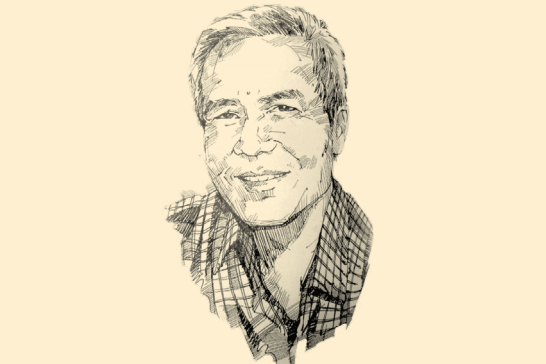
Dec 14, 2018 | News
Today, on the sixth anniversary of the disappearance of Lao civil society leader Sombath Somphone, the ICJ joined 106 organizations and 37 individuals in a joint statement calling for an independent, impartial and effective investigation to reveal his fate and whereabouts.
The statement read as follows:
14 December 2018: On the eve of the sixth anniversary of the enforced disappearance of Lao civil society leader Sombath Somphone, we, the undersigned organizations, reiterate our calls for the Lao government to conduct an independent, impartial and effective investigation to reveal his fate and whereabouts.
Sombath was last seen at a police checkpoint on a busy street of the Lao capital, Vientiane, on the evening of 15 December 2012.
Footage from a CCTV camera showed that Sombath’s vehicle was stopped at the police checkpoint and, within minutes, individuals forced him into another vehicle and drove him away in the presence of police officers. CCTV footage also showed an unknown individual driving Sombath’s vehicle away from the city center.
The fact that police officers were present at and witnessed Sombath’s abduction and failed to intervene strongly indicates state agents’ involvement in, or acquiescence to, human rights violations committed against Sombath, which include the crime of enforced disappearance.
Later that evening, witnesses reportedly saw Sombath at a police holding facility in Vientiane yet to date officials have provided no information about what he was doing there and subsequently what happened to him.
For the last six years, the Lao government has failed to provide any credible answers with regard to the disappearance of Sombath Somphone.
In its most recent pronouncements, made during the review of Laos’ initial report by the Human Rights Committee (CCPR) in July 2018, the Lao government said it had been “trying very hard” to investigate Sombath’s fate and whereabouts.
However, this statement has been contradicted by the government’s refusal to accept international assistance in conducting the investigation and to provide any details about the progress of its investigation.
Lao authorities have failed to disclose any new findings from their investigation of Sombath’s case to the public since 8 June 2013 and have met with his wife, Shui Meng Ng, only twice since January 2013.
Despite the government’s recent claim that police had the “capacity and techniques” to reveal Sombath’s fate and whereabouts, we remain extremely concerned by the lack of progress in the investigation by Lao authorities into his case and reiterate our call for Vientiane to allow international assistance towards conducting an independent, impartial and thorough investigation according to international law and standards.
The Lao authorities have international legal obligations to conduct such investigations and to bring persons responsible for serious violations to justice under treaties to which they are party, including the International Covenant on Civil and Political Rights and the Convention against Torture.
We also urge the Lao government to ratify the International Convention for the Protection of All Persons from Enforced Disappearance, which Laos signed in September 2008, to incorporate the Convention’s provisions into the country’s domestic legislation, and implement it in practice.
Until Sombath Somphone’s fate and whereabouts are revealed, we will not stop demanding that Sombath be safely returned to his family and we will continue to ask the Lao government: “Where is Sombath?”
Laos-SombathSomphoneDisappearance-Advocacy-JointStatement-ENG-2018 (full statement, including list of signatories, PDF in English)
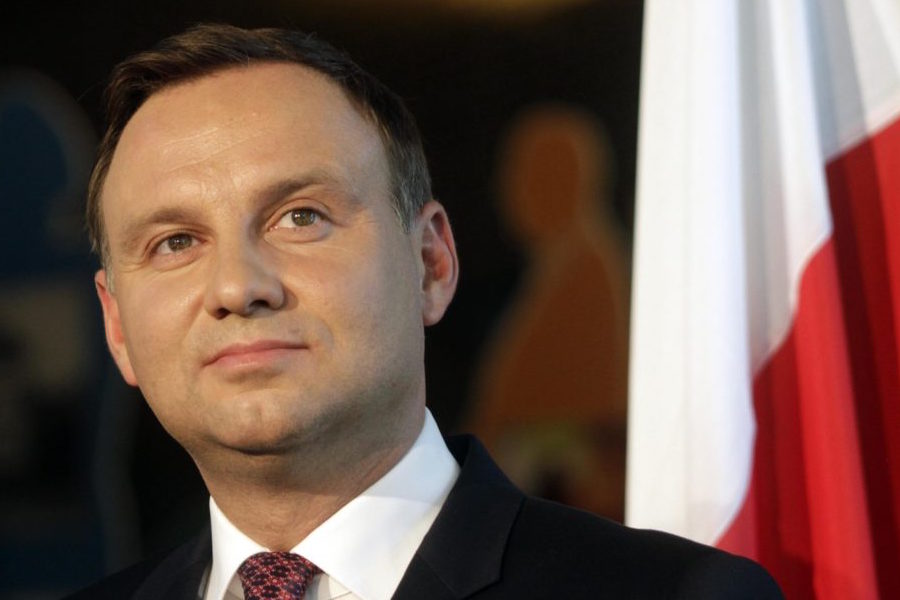
Dec 12, 2018 | News
The ICJ today called on President Andrzej Duda to sign legislation that would require the reinstatement of the Supreme Court justices that were forcibly “retired” in July 2018.
On 21 November 2018, the lower house of the Polish Parliament (Sejm) approved Draft Law no. 3013, which would amend the Law on the Supreme Court. This amendment would ensure that the Supreme Court and Supreme Administrative Court justices who “retired … return in office on the day of entry into force of this Law” (Article 2.1).
The Minister of Justice has stated that the Law is being adopted to implement the EU Court of Justice interim measures issued in the infringement proceedings against Poland for the failure to respect the tenure of its Supreme Court justices.
“The draft law is a step in the right direction to implement the interim measures by the Court of Justice of the EU,” said Massimo Frigo, Senior Legal Adviser for the ICJ Europe and Central Asia Programme.
“It is important that President Duda signs this law promptly to ensure the independence of the judiciary in Poland as well as respect for its obligations under EU law,” he added.
The ICJ however is concerned that this law still refers to the Supreme Court justices to be reinstated as “retired.”
The forced “retirement” of one-third of the Supreme Court Justices constituted effectively a disguised dismissal in breach of international law and EU law standards on the rule of law and the independence of the judiciary.
Any reference to the “retirement” of the Supreme Court Justices should therefore be deleted.
“The Government’s intention that these measures be issued to implement the Court of Justice’s interim measures suggests that these measures are not intended to be permanent,” said Massimo Frigo.
“The Court of Justice and the European institutions should pursue the Article 7 procedure and the infringement proceedings until the forced judicial “retirements” are fully rescinded and no further similar attempts are made to undermine judicial independence and function.”
Background
A law on the Supreme Court, which entered into effect in July 2018, attempted to force the “retirement” of 27 of the 72 Supreme Court judges, including the First President, by lowering the mandatory retirement age for its judges from 70 to 65 years.
The ICJ has condemned the “forced retirement” of the 27 Supreme Court Justices as violating the security of tenure of judges in direct contravention of the principle of judicial independence, as expressed in international law and standards.
These include the UN Basic Principles on the Independence of the Judiciary, Council of Europe standards, the European Court of Human Rights’ jurisprudence and the rule of law principles enshrined in article 2 of the Treaty on European Union.
An ICJ letter of 11 July 2018, signed by 22 senior judges from all regions of the world, urged the Polish government to act immediately to reinstate the forcibly retired judges in office.
The European Commission has recognized the current situation as undermining “the principle of judicial independence, including the irremovability of judges” and has triggered a procedure under Article 7 of the Treaty of the European Union that could ultimately lead to suspension of Poland’s EU voting rights.
The Commission has also launched infringement proceedings against Poland in respect of the law on the Supreme Court.
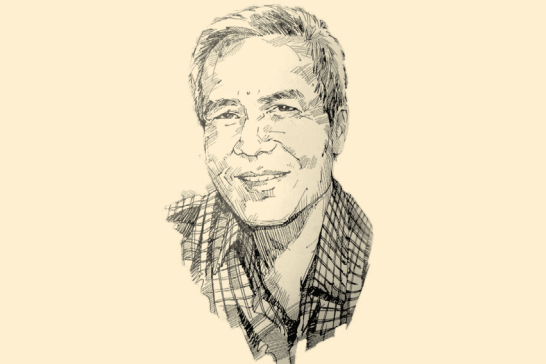
Dec 12, 2018 | Events, News
On 12 December 2018, the ICJ co-organized a panel discussion at Bangkok Art and Culture Center (BACC) in Thailand marking the 6th anniversary of the evident enforced disappearance of prominent Lao civil society leader Sombath Somphone.
The panel discussion was co-organized with the International Federation for Human Rights (FIDH), ASEAN Parliamentarians for Human Rights (APHR) and Forum Asia.
On 15 December 2012, Closed Circuit Television (CCTV) footage taken by police cameras near a police checkpoint in Vientiane, Lao PDR, appeared to show that Sombath Somphone was abducted at the checkpoint by, or with the consent or acquiescence of, agents of the State. He has not been seen since.
Six years after his abduction, Laotian authorities have repeatedly failed to provide meaningful information as to his fate or whereabouts, or conduct an independent, impartial and effective investigation towards determining his fate. The last police report on his case was issued on 8 June 2013.
In light of the 6th anniversary, the panel discussion considered what further steps could be taken to continue advocacy on his case and spoke about regional implications and responses.
The panelists were:
- Ng Shui-Meng, Wife of Sombath Somphone;
- Edmund Bon, Lawyer, Malaysia’s Representative to the ASEAN Intergovernmental Commission on Human Rights;
- Premrudee Daoroung, Project SEVANA’s South-East Asia Coordinator;
- Charles Santiago, Malaysian Member of Parliament.
The panel was moderated by the Andrea Giorgetta from the International Federation for Human Rights (FIDH).
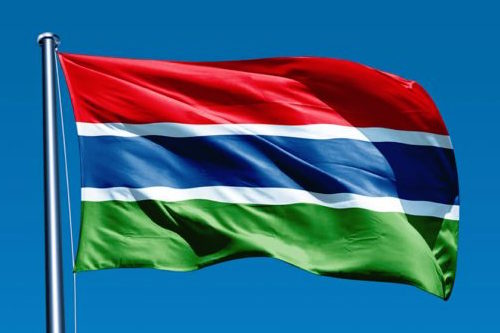
Nov 25, 2018 | News
The International Commission of Jurists (ICJ) welcomes the formal declaration of the Gambia to allow individuals and certain non-governmental organizations with observer status access to complain of human rights violations against the Gambian State at the African Court on Human and Peoples Rights.
Gambia became the ninth African State to make the declaration to allow individual access the African Court on Human and Peoples Rights. The ICJ called on other States to follow suit rapidly.
“The Gambian government should be applauded, but more African States need to step up to reinforce their international human rights obligations by allowing victims of violations direct access to the Court and to empower the African Human Rights Court to do the work for which it was set up.” said Arnold Tsunga, Director of the ICJ African Regional Progamme. “It is only through extensive depositing of article 34(6) by the majority of African states that the court can be truly an African Court”.
In addition to granting access to individuals, the Declaration made under article 34(6) of the Protocol to the African Charter on Human and Peoples’ Rights triggers the courts jurisdictional competency under article 5(3) to allow for a limited number of NGOS access.
“The promise of human rights protection under the African human rights system can only be realized when political leaders match rhetoric with such action as allowing individuals to seek an effective remedy by direct access to regional human rights mechanisms like the African Court,” added Arnold Tsunga.
The ICJ emphasized that despite the significant human and material resources invested in the Court since its establishment in 2006, the African Court has been unavailable to great majority of Africans, since very few States had so far entered the declaration recognizing its competency.
Other States that have previously made declarations include Benin, Burkina Faso, Côte d´Ivoire, Ghana, Malawi, Mali, Tanzania and Tunisia.
Although, complaints of human rights violation can only be brought directly before the Court against the nine States that have made the declaration, victims of human rights violation of almost all African States can already bring claims against other states through the non-judicial communication procedure available at the African Commission on Human and Peoples´ Rights.
The ICJ stressed while access to the Commission’s procedures is important, it was not an adequate substitute for the kind of binding legal remedy that can be only ordered by a Court. The ICJ noted poor rate of compliance with decisions of the African Commission.
Contacts:
Arnold Tsunga, Director of the Africa Regional Programme, International Commission of Jurists C: +263 77 728 3248, E: arnold.tsunga(a)icj.org
Solomon Ebobrah, Senior Legal Advisor, Africa Regional Programme, International Commission of Jurists.C: +234 803492 7549, E: solomon.ebobrah(a)icj.org









